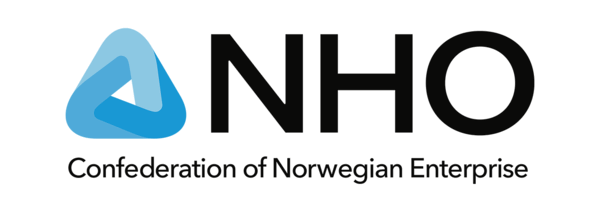

NHO Confederation of Norwegian Enterprise
NHO has collaborated with selected sister organizations in Africa and Asia since 2002. ICP is part of NHO's International Department. Through a collaboration with NHO's sister organizations, a broad contact area is established with the local business community.
- An active business sector is crucial for lifting countries out of poverty. NHO wants to release the potential for innovation and entrepreneurship in developing countries and has therefore been working to ensure that Norwegian business and industry is a constructive partner in development policy.
- The private sector is a key player if the UN's ambitious sustainability goals are to be achieved by 2030. Poverty must be eradicated, and economic growth ensured. Norwegian companies can help fulfil these goals.
- NHO works closely with its sister organizations in selected countries to improve conditions for business and organized working life. This is what NHO does in collaboration with Norad and the Ministry of Foreign Affairs.
- NHO believes that there is great potential for increasing the strategic partnership between the government, the private sector and civil society.
- Job creation should be an essential feature in Norwegian development policy.
Strengthen local employers' organizations - long-term partnership
The projects are financed by Norad and the Ministry of Foreign Affairs and are based on long-term partnerships. The goal of the collaboration is to strengthen the local employers' organizations. Through the transfer of expertise, NHO contributes to the organizations being able to provide assistance to their member companies. A professionalization of the employers' organizations will eventually benefit both employers and employees.
The organizations that NHO cooperates with are members of the International Labor Organization (ILO) and have a similar role as NHO, at the national level in their country, in the tripartite system and in cooperation and negotiations with trade unions.
The topics that are being worked on are; (i) organizational development, (ii) developing the services offered to the member companies and (iii) strengthening the employers' organizations' ability to work with the private sector framework and influencing policy formulation.
The projects also include the following thematic topics; social dialogue, vocational training and the Female Future program.
Social dialogue
NHO and its sister organizations have found it particularly relevant to collaborate on social dialogue in the following areas: (i) improve the employers' ability to provide services to their member companies on social dialogue and collective bargaining; (ii) strengthen bipartite cooperation with unions on a national and sectoral level, and (iii) strengthen social dialogue and collective bargaining at company level. NHO's sister organizations are also interested in the Norwegian model for bipartite and tripartite cooperation.
Female Future
Female Future is a management and board development program for female managers. The main purpose is to provide knowledge, self-awareness and to motivate women to take board positions and important management tasks in business and industry. The program has proven to be a success in Norway. The program is now being carried out by NHO's sister organizations in Uganda, Kenya and Tanzania with good results. The program is based on a model developed by NHO, as a service to its members. The programme provides a better pool of competent women to choose from when recruitment to boards and management positions take place. This is beneficial for the women, for the business community and for countries that deliberately work to get more women into top positions.
Vocational training
The vocational training project aims to improve the education system by establishing closer links between training institutions and the private sector. This is to ensure that the training offered corresponds to the needs of the labour market. In Vietnam, a project in collaboration with NHO has contributed to the revision of the Vietnamese vocational training law, which now requires a stronger cooperation between the school and the company.
China - Africa
The "China-Africa project" is a collaboration between NHO, China Enterprise Confederation (CEC) and the employers' organizations in Kenya and Tanzania. The partnership aims to strengthen cooperation between Chinese businesses and the employers' organization in the two countries. Among other things, "Guidelines for Labour Relations" in East Africa have been developed for Chinese companies, several Chinese companies have joined the local employers' organizations and in Kenya, two large Chinese companies have signed collective agreements.
